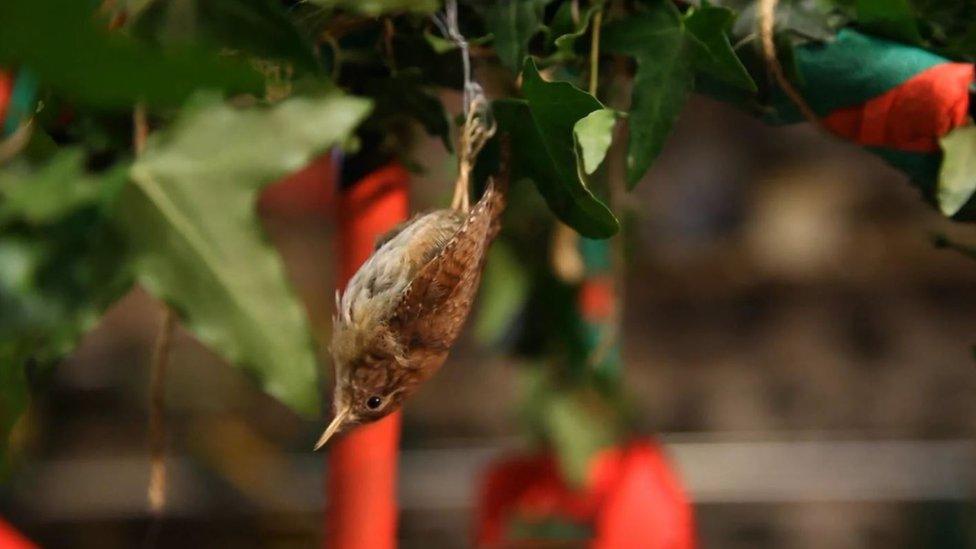Hunt the Wren: Ancient Manx tradition grows in popularity
- Published
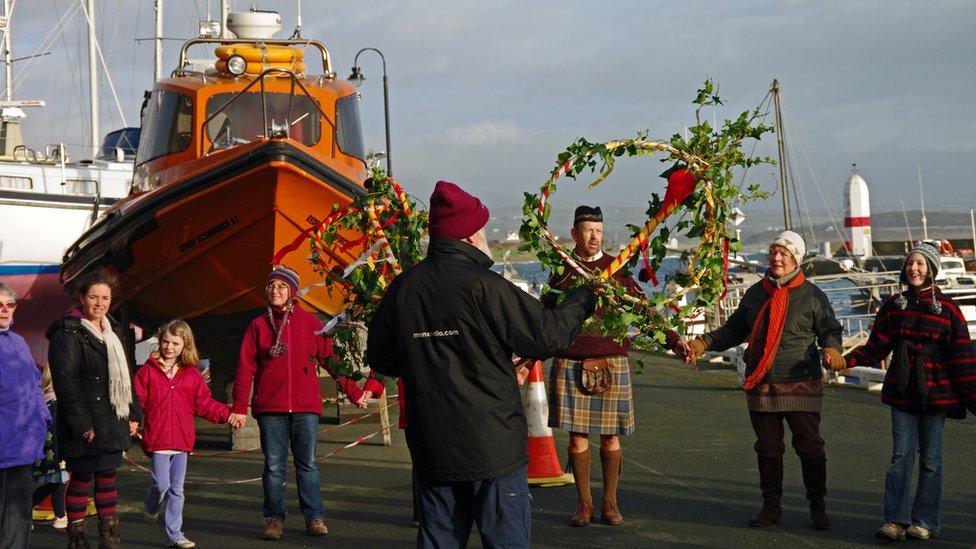
On 26 December people sing and dance around wren poles across the island
An ancient tradition celebrated by people on the Isle of Man on St Stephen's Day has been "getting stronger", organisers have said.
The ritual of hunting the wren sees groups of people across the island sing and dance around a decorated wren pole.
A 1720 account said the custom had been practiced since "time immemorial", but interest had declined by the 1900s.
James Franklin of Culture Vannin said the number of people taking part in the tradition was now growing again.
A Manx folk tale on the origins of the tradition tells the story of an enchantress who enticed the men of the island to fall in love with her, before luring them to harm.
"For this, she was chased until she turned herself into a wren to get away, and it is on St Stephen's Day that we go out and remember this by hunting the wren," said Mr Franklin.
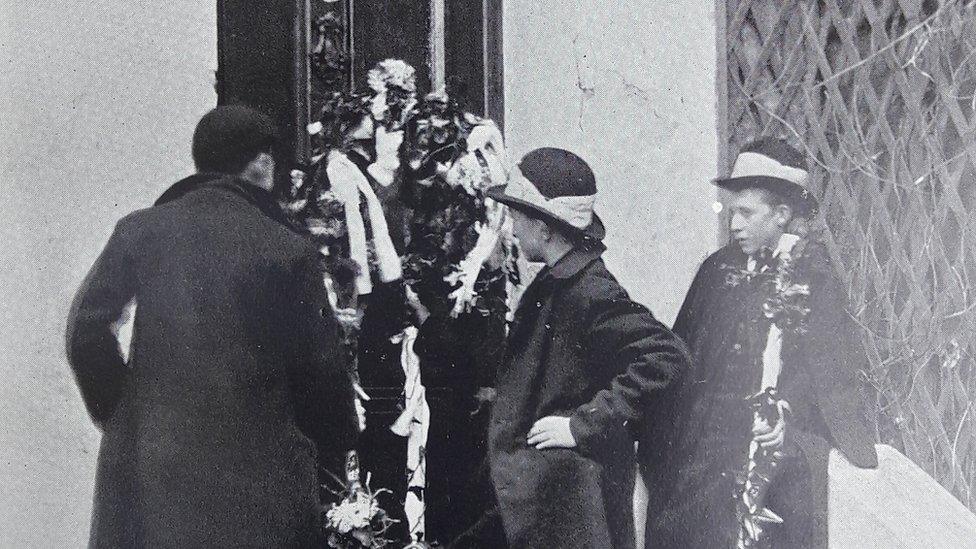
The ancient custom sees groups move around towns and villages to perform
While similar activities had been held in the British and Irish Isles "for centuries" in the past, the Isle of Man is one of the few places where the tradition had not died out, Mr Franklin said.
The practice centres on the "idea of the king of all birds being protected, but for this one morning of the year when one goes out and hunts it", he added.
In modern times a replica wren is attached to the pole, which is decorated with ribbons and greenery and held in the middle of a group of dancers, who are accompanied by a traditional song.
The last documented account of someone actually killing a wren for the event was recorded in the 1890s.
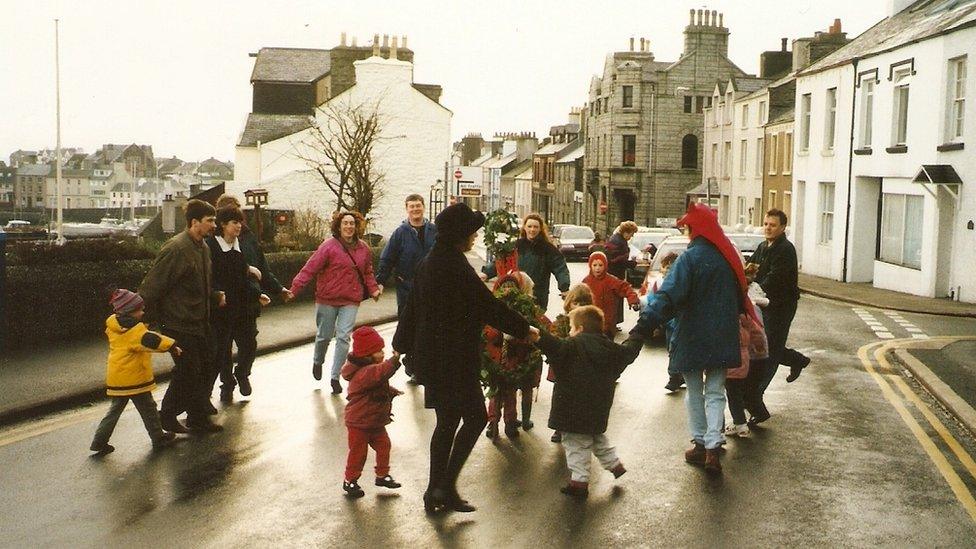
A Manx cultural revival saw hunt the wren brought back to some communities in the 1990s
Caroline Helps helped revive the tradition in Port St Mary in the mid-1990s through her links to the traditional dance group Perree Bane, with up to 100 people taking part in recent years.
"I think we started with about 8 or 10 people, then gradually it started to grow organically through word of mouth", she said.
Although the initial emphasis was on keeping the tradition alive, it has grown more popular because people "have a lot of fun doing it", she added.
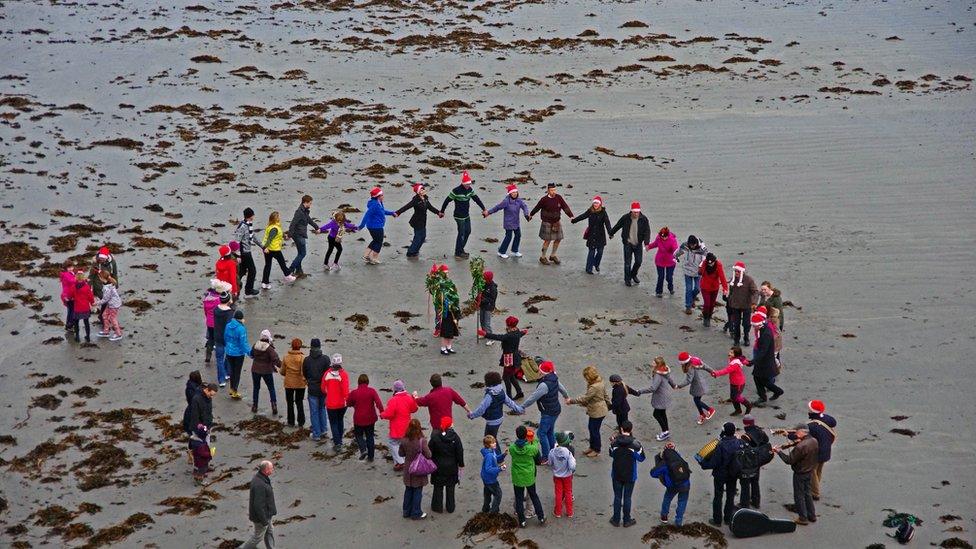
Organiser say more people are taking part because "it is a lot of fun"

Why not follow BBC Isle of Man on Facebook, external and Twitter, external? You can also send story ideas to IsleofMan@bbc.co.uk, external
- Published27 December 2018
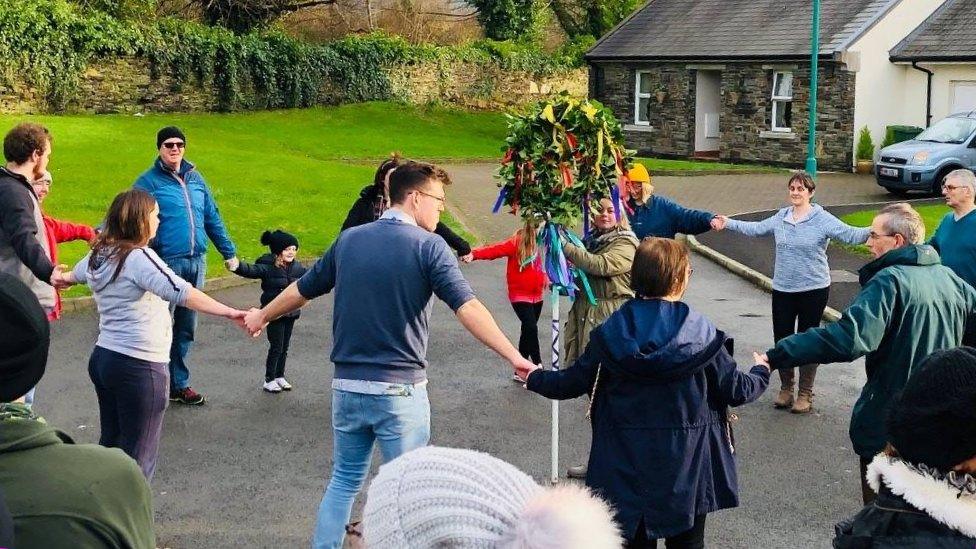
- Published30 November 2018
